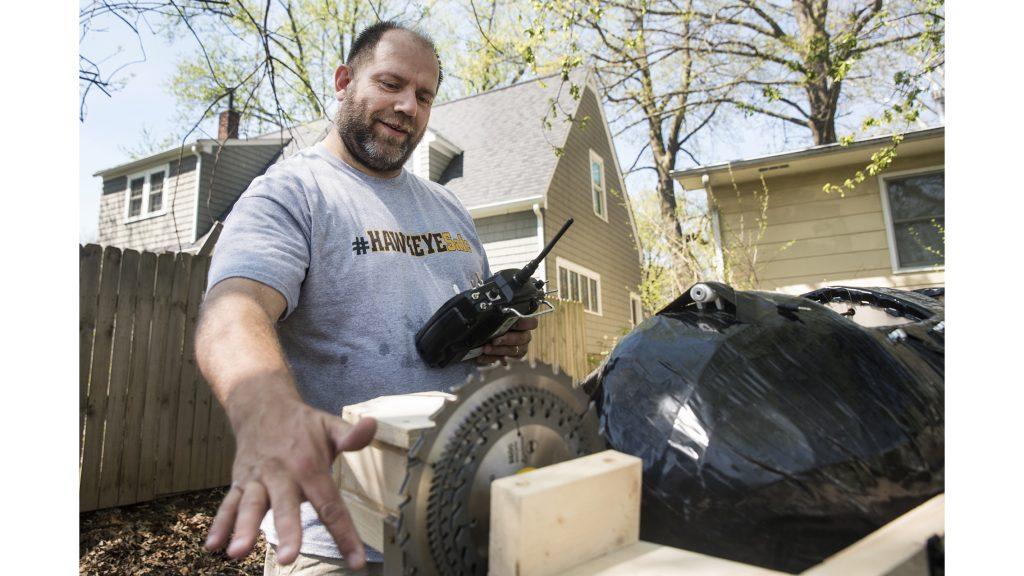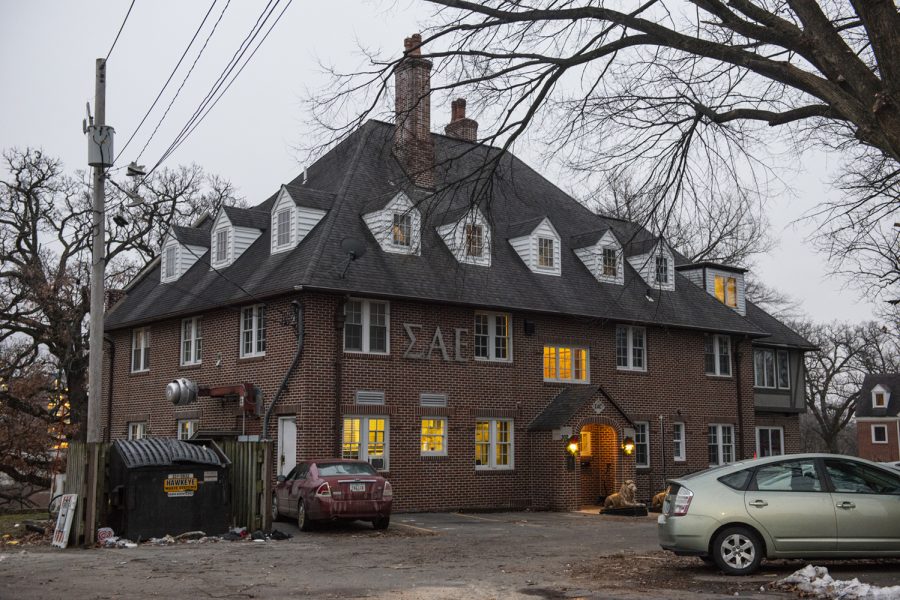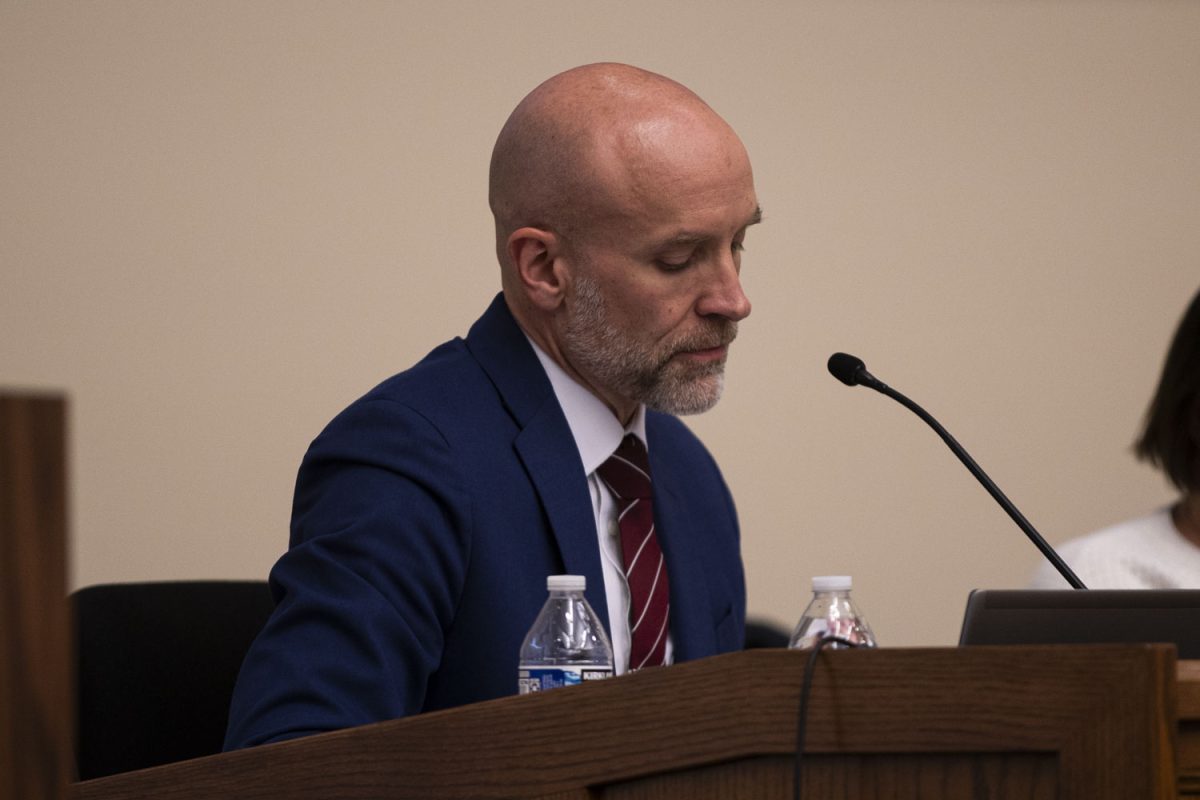Michael Simon, 43, is a University of Iowa undergraduate and Navy veteran. He spent five years serving his country aboard the submarine USS Jimmy Carter. However, his recent endeavors have brought him to the surface of the water instead of below it.
Simon first came to the UI in 1992, where he studied until 1997, before dropping out. Following several jobs after this, he decided to follow in his grandfather and father’s footsteps and join the armed forces.
During his time in the Navy, Simon worked as an electronic technician responsible for navigation. When his service ended, he moved to Arizona with his wife and worked with submarine certification at a military base.
Simon decided after several years of living in Arizona to return to the UI and obtain his degree with the GI Bill.
Simon returned in the fall of 2014 and continued his studies in geology and started working on an entrepreneurship certificate in addition.
One day, as part of a lesson for a geology class, Simon had an idea. Associate Professor Frank Weirich had taken his class to the Iowa River to discuss topics with a visual aid. Simon saw a pile of debris underneath a bridge next to the IMU that piqued his interest.
“I saw a pile of debris there and casually remarked about it,” Simon said. “Professor Weirich said it had been there a few years, but it is a hazard. Sometimes it builds up really big, and it’s a problem that can cause localized flooding. It can slow down water and can be harmful to the structure of the bridge.”
During an entrepreneurship class that coincided with this, Simon pitched an idea for a remote-controlled watercraft capable of cutting through the debris he had seen earlier. Several students were interested in pursuing the idea.
The group put together a business plan as part of a project, but after its conclusion, Simon was at a crossroads.
“I had to make a decision,” he said. “Do I want to leave this alone, scrap it, and move on to another idea, or do I pursue it? I thought it would be worth pursuing.”
Simon then joined the UI Founders Club, which opened up many resources for him and his ambitions. He pitched his idea to a capstone engineering course, and three students took an interest and worked on actually building the device.
The device, RC Beaver, is a watercraft with a series of saws mounted on an axle at its nose, powered by a battery and controlled by a reprogrammed remote.
Simon’s idea has been met with much praise among people with similar interests.
“That sounds like a great leap forward, especially for smaller streams,” Mel Schlachter, the chair of the Iowa River Friends, told The Daily Iowan in an email.
Simon’s mentor provided by the UI Founders Club, Matthew Barron, is well-versed in the traditional methods of river cleanup, and he said he believes the invention will be beneficial to everyone.
“It’s role-specific, and for the type of removal within range, it is cheaper, faster, and safer,” Barron said. “It also costs taxpayers less money — the traditional methods are very expensive and inconvenient.”
Simon is continuing his work with two interns, and he hopes to expand beyond the RC Beaver and look for other solutions to clean rivers.










